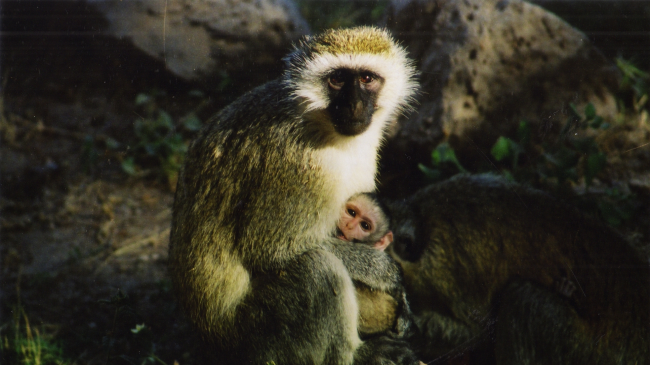Mommy brain
My husband and I had little — meaning no — baby experience before bringing our daughter home. We would jokingly ask questions like “how much do we have to feed this thing?” and then nervously laugh, look at each other with concern, and consult the “owner’s manual” (our affectionate name for the American Academy of Pediatrics tome).
And then, she was born. An insane flurry of eat, poop, soothe, repeat.
After those first few weeks, when the dust settled, I had a profound revelation — I might actually know what I’m doing! Could I now have maternal instincts that were not there before?
By its very definition, “instinct” is a response that is inherent, basic, not requiring thought or careful consideration. Unlearned. Unconscious. Instinct. [Note: maternal instinct makes sense given that we have yet to see a National Geographic film of a baboon parenting class gathering every third Tuesday on the savannah.]
Turns out, there is quite a bit of evidence demonstrating that our brain does, in fact, change when we transition from clueless pregnant woman to caregiver.
As pointed out in a 2012 review in Physiology and Behavior, this transition marks an important point at which our brains have to shift from a world revolving around self-care to one oriented around the care of a tiny helpless being. With a little bit of parenting experience, the mammalian brain shows changes in cognition (e.g. spatial memory, attention), emotional responsiveness (e.g. boldness in new settings, focus), and social awareness (e.g. attention to those helpless little beings). Put a pregnant rat in a cage with pups strewn about, and she doesn’t give a shit. Put a mama rat in a cage with pups strewn about, and she goes right to work, gathering up those babies, protecting and nurturing them.
Now, it probably helps that the mama brain is also altered to respond to baby with a spurt of sweet sweet dopamine right in the reward centers of the brain, similar to a hit of cocaine.
Yup, our babies are addictive.
As demonstrated in a 2005 paper in The Journal of Neuroscience, a mama rat with a suckling rat pup feels the same dopamine reward signal as a virgin rat does when given cocaine. Interestingly, though, in the mama rats, a dose of cocaine does not have this same effect and actually suppresses activity in the reward center. Nature’s way of focusing mom’s attention — You want to get high? Feed your baby.
But wait, a similar high does not require baby at the teat. In a 2008 study in Pediatrics, researchers using human subjects showed moms pictures of their own baby, or someone else’s, along a spectrum from smiley to distressed (see figure on left). Those same dopamine pathways were activated in these human mothers, BUT only when they were shown pictures of their own babies, and only when the babies were smiling.
But, c’mon, did you need a scientist to tell you that your baby’s smiles are like crack?
At the end of the day, though, the joke is on us. Evolution has crafted tiny manipulation machines. All those cute baby features — chubby cheeks, big eyes, tiny noses, large foreheads — drive our most basic urge to cuddle and protect. Our brains instinctively respond to “baby schema,” a term coined by Konrad Lorenz, a Nobel Prize-winning zoologist famous for studying imprinting and having adorable photos of baby geese following him around and preening his beard. Even the guy’s guy can’t ignore a cute baby face. Go watch Three Men and a Baby for the not-so-scientific evidence.
If you do want scientific evidence, a 2009 study in the Proceedings of the National Academy of Sciences documented which areas of the brain are activated when non-mothers were shown pictures of babies with enhanced or downplayed “baby schema”-typical features. Using manipulated pictures of babies either made “cuter” or, well, not so cute, the researchers were able to demonstrate that the cuter the baby, the more activated the area of the brain associated with anticipation of reward. The motivational drive to become caregivers to cute little critters runs deep in our animal instincts.
There you have it, humans. We all have a little bit of mommy brain!
Happy Mother’s Day!
Lambert, K. G. The parental brain: Transformations and adaptations. Physiology and Behavior 107, 792–800 (2012).
Strathearn, L., Li, J., Fonagy, P. & Montague, P. R. What’s in a Smile? Maternal Brain Responses to Infant Facial Cues. PEDIATRICS 122, 40–51 (2008).
Ferris, Craig F., et al. Pup suckling is more rewarding than cocaine: evidence from functional magnetic resonance imaging and three-dimensional computational analysis. The Journal of Neuroscience 25.1, 149-156 (2005).
Glocker, M. L. et al. Baby schema modulates the brain reward system in nulliparous women. Proceedings of the National Academy of Sciences 106, 9115–9119 (2009).

I had gotten pregnant at age 17. I was much smaller than most. The day I delivered my son I weighed 124 pounds. At 7 months there was this guy who was grabbing my body and I told h to stop but he continued and with no thought process at all my fist punched him in the mouth and made him cry. I have been so confused by this for over 20 years as I don’t know how to punch someone yet today. I had never punched anyone like a professional boxer can except that one time. I think it was maternal super human power. Anyways as that guy ran away crying he was yelling how horrible and mean I was.
amazing!